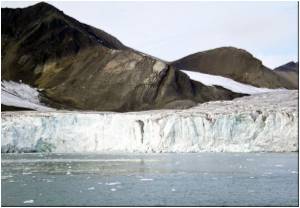A new study has found that the quickest, best way to slow the rapid melting of Arctic sea ice is to reduce soot emissions from the burning of fossil fuel, wood and dung.

Because of that, soot's contribution to global warming has been ignored in national and international global warming policy legislation, he said.
"Controlling soot may be the only method of significantly slowing Arctic warming within the next two decades," said Jacobson, director of Stanford's Atmosphere/Energy Program.
"We have to start taking its effects into account in planning our mitigation efforts and the sooner we start making changes, the better."
To reach his conclusions, Jacobson used an intricate computer model of global climate, air pollution and weather that he developed over the last 20 years that included atmospheric processes not incorporated in previous models.
He examined the effects of soot - black and brown particles that absorb solar radiation - from two types of sources.
Advertisement
What he found was that the combination of both types of soot is the second-leading cause of global warming after carbon dioxide.
Advertisement
Jacobson's study will be published this week in Journal of Geophysical Research (Atmospheres).
Source-ANI









